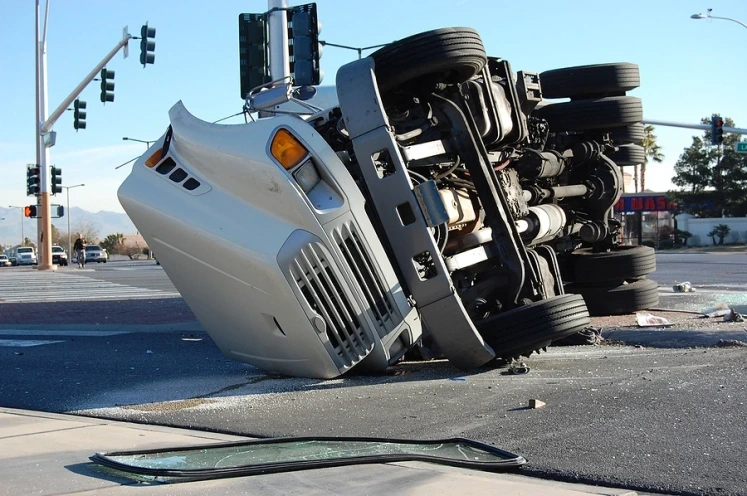Truck Accident Lawyer Winter Park

Truck accidents often result in severe injuries and more complex legal issues due to the involvement of large companies and multiple parties. If you’ve been injured in a truck accident in Winter Park, having a knowledgeable truck accident lawyer on your side is essential to ensuring a successful claim. Weston & Pape is committed to advocating for your rights and securing the compensation you deserve. Reach out to us at 561-821-3898 for a free consultation.
How Weather Conditions Impact Truck Accidents
Weather is one of the most unpredictable factors on the road. While most drivers adjust their behavior during poor conditions, commercial trucks don’t always have that flexibility. Their size, weight, and stopping distance make them harder to control in the rain, fog, or wind. When a truck accident happens in Winter Park or elsewhere in Florida during bad weather, the conditions themselves may not be the only cause. In many cases, the way the driver responded—or failed to respond—to the weather is what leads to serious crashes.
Here’s a look at how different weather conditions influence truck accidents, why they happen, and what victims need to know when filing a claim.
How bad weather increases the risk of truck crashes
Truck drivers are trained to operate their vehicles in all types of conditions, but there are limits. When the weather shifts, so does the risk level. Here are a few common weather-related hazards:
Rain and slick roads
Rain is one of the leading weather-related causes of accidents in Florida. Wet roads reduce traction, which can cause a truck’s tires to slip or hydroplane. When a truck loses grip, stopping becomes more difficult, and steering can become unreliable. Even a light drizzle can create dangerous situations, especially during the first few minutes of rainfall when oil residue rises to the surface.
Fog and low visibility
Fog limits how far ahead drivers can see. For truck drivers, this is especially dangerous. Large trucks take longer to stop and need more time to react. If a vehicle ahead suddenly slows down or a hazard appears in the road, there may not be enough time to avoid a crash. Fog can also make it harder to judge distances between vehicles.
High winds
Strong winds are a major threat for large commercial vehicles, particularly box trucks and tractor-trailers. High-profile vehicles catch wind more easily. In strong gusts, a truck can sway or even tip over. Drivers may also struggle to keep the vehicle in its lane, increasing the chance of a sideswipe or rollover accident.
Heavy storms or hurricanes
Florida is no stranger to tropical weather. Severe storms bring a mix of hazards: flooding, wind, debris, and poor visibility. Trucks caught in these storms may be forced to pull over, but not every driver does. If a driver chooses to keep moving through dangerous conditions and causes a crash, their decision can be a critical factor in determining fault.
Ice or frost in colder areas
While rare in Winter Park, colder pockets of the state may still see freezing temperatures overnight. Bridges and shaded roads can develop frost, leading to sudden and unexpected slick spots. A truck hitting black ice can lose control quickly, especially if speeding or braking too hard.
What the Rules Say About Driving in Bad Weather
Truck drivers are subject to strict regulations. The Federal Motor Carrier Safety Administration (FMCSA) requires drivers to use extra caution in adverse weather. If conditions become unsafe, they must slow down or stop until it is safe to continue. Failing to follow this rule can be considered negligence.
If a driver keeps going at full speed through rain, fog, or wind and ends up causing a crash, that decision can be a key part of a personal injury case. It’s not enough to blame the weather. The focus shifts to whether the driver acted responsibly based on the circumstances.
How weather impacts liability in a truck accident
When a weather-related truck accident happens, investigators and attorneys look at several factors:
- Was the driver going too fast for conditions?
Even if they were within the posted speed limit, that may not be safe during a storm. - Did the trucking company pressure the driver to stick to a schedule?
Sometimes, companies push for deadlines even when it’s unsafe to drive. - Was the truck properly maintained?
Worn tires, poor brakes, or broken lights can make a truck more dangerous in bad weather. - Did the driver follow state and federal safety rules?
Failure to reduce speed or pull over when necessary can suggest fault.
In many cases, weather may have contributed to the crash, but it’s not the sole reason it happened. Human choices—how the driver and the company responded—are just as important.
What to do if you were injured in a truck crash during bad weather
If you were involved in a crash with a truck while it was raining or storming, it’s important not to assume it was just bad luck. There may be a valid claim for compensation if the truck driver or company acted carelessly.
Here are a few steps to take after the crash:
- Get medical care right away – Even if your injuries seem minor, get checked out. Some injuries aren’t obvious at first.
- Report the accident – Make sure a police report is filed and include weather details. Officers often note conditions at the scene.
- Take photos or videos – If possible, document the road, the weather, and the damage to both vehicles.
- Get witness contact information – Other drivers or pedestrians may be able to confirm the truck’s behavior or the weather conditions.
- Speak with a personal injury lawyer – An attorney can investigate further, review driving logs, maintenance records, and weather data to determine whether the driver followed proper safety protocols.
Why truck accident cases need careful investigation
Weather-related truck accidents are more complex than they may appear. Insurance companies often point to the weather as an uncontrollable factor to avoid paying claims. But that’s not the end of the story.
A detailed investigation can uncover whether the driver failed to act appropriately under the conditions. Expert witnesses, such as accident reconstructionists or meteorologists, may be brought in to support your case.
Truck accidents also often involve multiple parties—drivers, trucking companies, maintenance contractors, and insurance carriers. An experienced personal injury attorney knows how to sort through these layers to identify who is responsible and build a strong claim.
Weather can’t be controlled, but how drivers react to it can. If a truck driver failed to adjust for road conditions and you got hurt because of it, you may be entitled to compensation for your medical bills, lost income, and pain from the accident.
How a Personal Injury Attorney Supports Truck Accident Victims
Truck accidents are often complicated, especially when multiple parties and corporate insurance policies are involved. A personal injury attorney with experience in these cases can make a significant difference in the outcome of your claim. At Weston & Pape, we work tirelessly to protect your rights and seek the compensation you need. Reach out to us at 561-821-3898 for a free consultation with a truck accident lawyer who understands what it takes to win.

 Call Us Today - It's Free
Call Us Today - It's Free